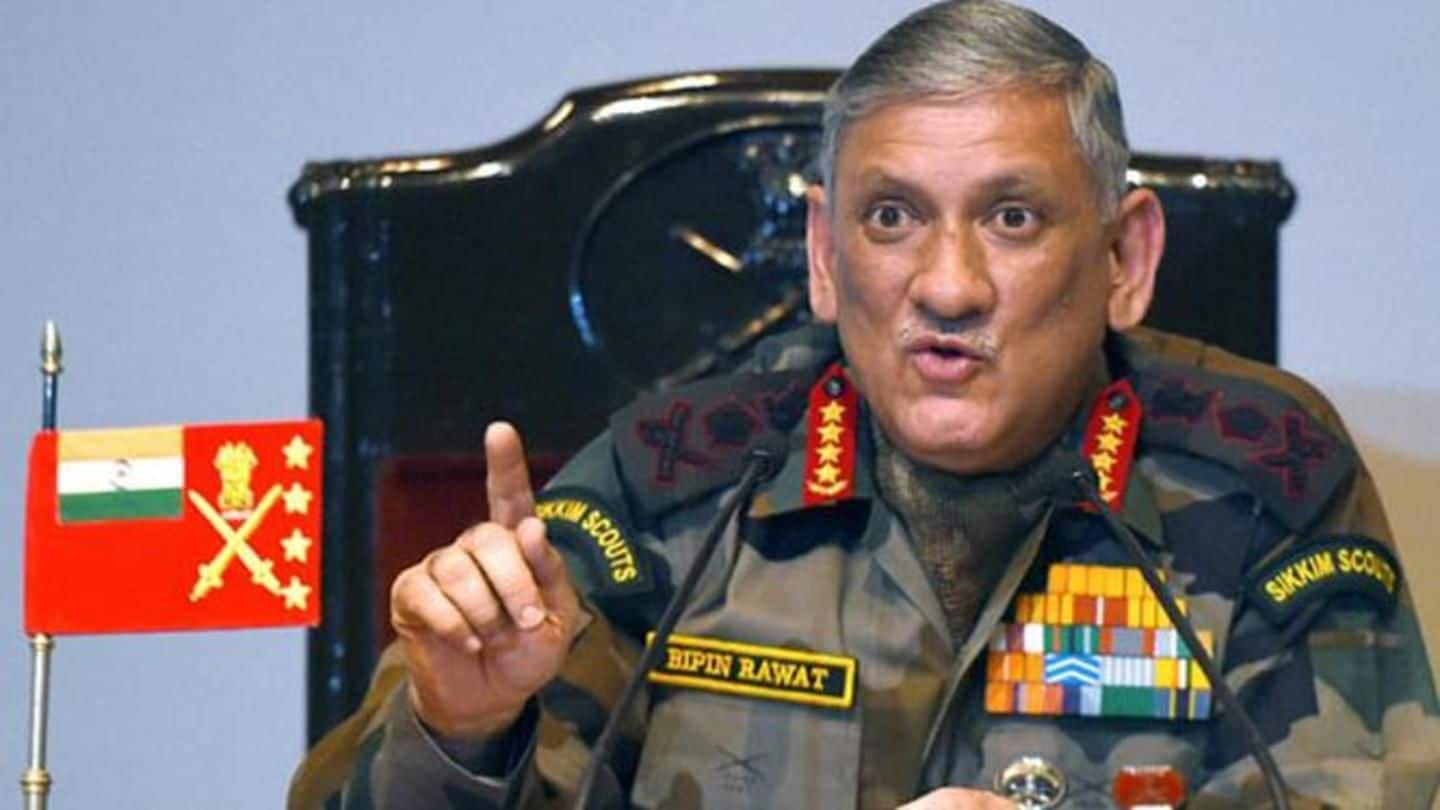
'Azadi' isn't possible, you can't fight army: Rawat to Kashmiris
What's the story
Army Chief General Bipin Rawat has urged Kashmiri youths to understand "azadi" isn't possible and that it's a futile fight. "You can't fight the army," he said.
Those who tell them that militancy will bring freedom "are misleading them."
He added the forces in Kashmir "haven't been so brutal." "Look at Syria and Pakistan" where they use tanks and air power, he said.
Violence
'Youth are angry, but attacking forces isn't the way'
Rawat said army personnel "don't enjoy" killing, but if someone "fights us, then we will fight you."
"Our troops have been trying their level best to avoid any civilian casualty despite huge provocation."
"These numbers (of militants killed) don't matter to me because I know this cycle will continue."
"I know the youth are angry. But attacking security forces isn't the way," he said.
Stone pelting
'The youth have gotten themselves in Pakistan's trap'
Rawat also addressed stone-pelting by locals, which "incit(es) forces to disrupt operations."
"Who is inciting (the people)? If they want that militants aren't killed, they should tell them to come out without their weapons."
The army "did try a soft approach too," he said, but pointed out violence had started after Burhan Wani's killing.
"Everything was turned upside down in a few days."
Arms
'Ready to suspend military operations, but who'll guarantee our safety?'
The army chief said he is "ready to suspend" military operations to avoid civilian casualties.
"But who will guarantee there won't be fire at our men? Who will guarantee that policemen, political workers aren't attacked?"
He mentioned a recent operation when "we withdrew our men so the situation doesn't turn bad. But as we left, our men came under fire. An officer was injured."
Solution
'Peace has to be a two-way process'
Rawat admitted "there isn't a military solution to this (Kashmir) issue," and political representatives need to talk to people.
"But they are scared they'll be attacked. It will happen once there is calm. And we're hopeful people will realize all this is futile and start thinking differently," he said.
"People have to reciprocate so we can move forward. It has to be a two-way process."